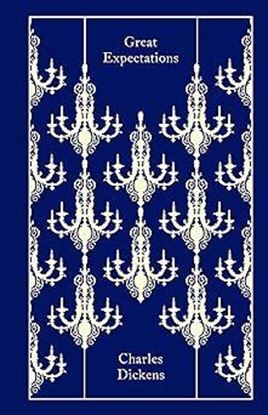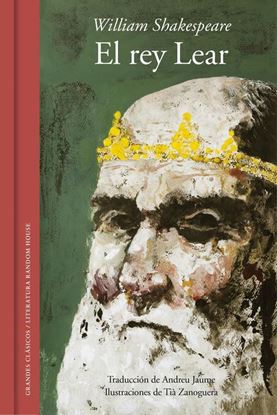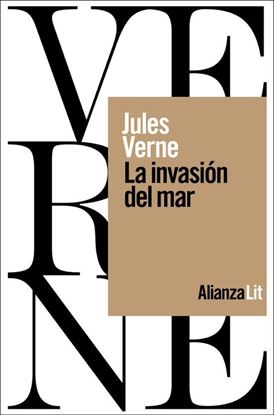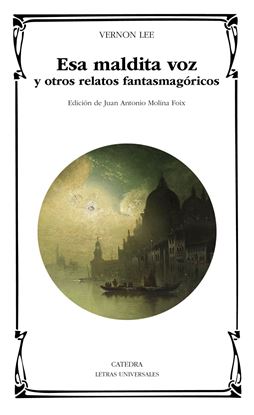

GREAT EXPECTATIONS (TD)
Pip doesn't expect much from life...His sister makes it clear that her orphaned little brother is nothing but a burden on her. But suddenly things begin to change. Pip's narrow existence is blown apart when he finds an escaped criminal, is summoned to visit a mysterious old woman and meets the icy beauty Estella. Most astoundingly of all, an anonymous person gives him money to begin a new life in London. Are these events as random as they seem? Or does Pip's fate hang on a series of coincidences he could never have expected?
1,600
1,200
EL REY LEAR (ILUSTR.) (TD)
El rey Lear es el mayor logro de Shakespeare y una de las obras más radicales que ha dado la literatura occidental. Lear es un viejo rey que decide de pronto dividir su reino entre sus tres hijas pidiéndoles a cambio que les expresen su grado de amor. Goneril y Regan se deshacen hipócritamente en halagos, y Cordelia, la pequeña y favorita, contesta que no dirá nada, una respuesta que desata la furia de su padre y el principio de un viaje hasta lo más hondo de la condición humana. Desnudo ante el mundo, Lear se verá despojado de sus dominios, de su autoridad, de su cordura y de lo que más ha querido. Nada hay en esta obra que no sea interrogado. Habiéndose cumplido cuatrocientos años de la muerte de Shakespeare, publicamos una nueva edición y traducción de esta magna tragedia al cuidado del editor y crítico Andreu Jaume.
1,600
1,200
LA INVASION DEL MAR
En la década de 1880, un geógrafo francés llamado François Élie Roudaire quiso inundar parte del desierto del Sáhara con agua del Mediterráneo, excavando un canal desde el golfo de Gabes hasta un conjunto de lagos salados norteafricanos, con la intención de modificar así el paisaje y crear un microclima propicio al desarrollo de la agricultura.
1,600
1,200
TRAGEDIAS II (TD)
Eurípides es el más inquieto y apasionado de los tres grandes autores trágicos griegos. Seguramente también es el más influyente, gracias a su sensibilidad poética, más cercana a la actual. A diferencia de Esquilo y Sófocles, que le precedieron, Eurípides humaniza y dota de carácter realista al mito, da rienda suelta a los arrebatos poéticos, a la vez que también se muestra muy racionalista. En este contraste contradictorio radica parte de su encanto y de su modernidad.
El segundo tomo de las tragedias completas de Eurípides en la Biblioteca Clásica reúne las obras: Las suplicantes, Heracles, Ion, Las troyanas, Electra e Ifigenia entre los tauros.
1,600
1,200
ANGEL GUERRA
La publicación de "Ángel Guerra" supone un giro en la novelística galdosiana que, para muchos críticos, constituye una toma de conciencia del autor con respecto a las cuestiones espirituales y religiosas, en un intento de plantear un cambio de valores en la sociedad. Como en las posteriores "Nazarín" y "Halma", que completan junto con "Misericordia" su llamado "ciclo espiritual", Galdós asienta su relato sobre la base del problema de la fe cristiana en relación con la pobreza, así como en los intentos de sus personajes por contribuir a la lucha contra la injusticia social. En el caso concreto de "Ángel Guerra" asistimos a la transformación que experimenta su protagonista, quien desde una postura arreligiosa, marcada por la lucha política y un utopismo radical, emprende una búsqueda aparentemente genuina de la fe.
1,600
1,200
ESA MALDITA VOZ Y OTROS RELATOS FANTASMA
Vernon Lee, seudónimo de la británica Violet Paget, nació en 1856 en Boulogne-sur-Mer (Francia), y murió en San Gervasio Bresciano (Italia) en 1935. En la literatura fue precoz y brillante desde época temprana, quedando su vida marcada por una educación cosmopolita y una gran curiosidad que se verían reflejadas en la calidad de sus ensayos y en las documentadísimas ambientaciones de sus obras de ficción. Los seis relatos que recoge este volumen son "Oke de Okehurst o un amante fantasma", "Amour Dure", "Esa maldita voz", "La leyenda de madame Krasinska", "Dionea" y "La virgen de los siete puñales" y se cuentan entre las obras mejor perfiladas de la autora, como lo prueban su vigente popularidad y su continua reedición desde que fueron publicados por primera vez.
1,600
1,200














